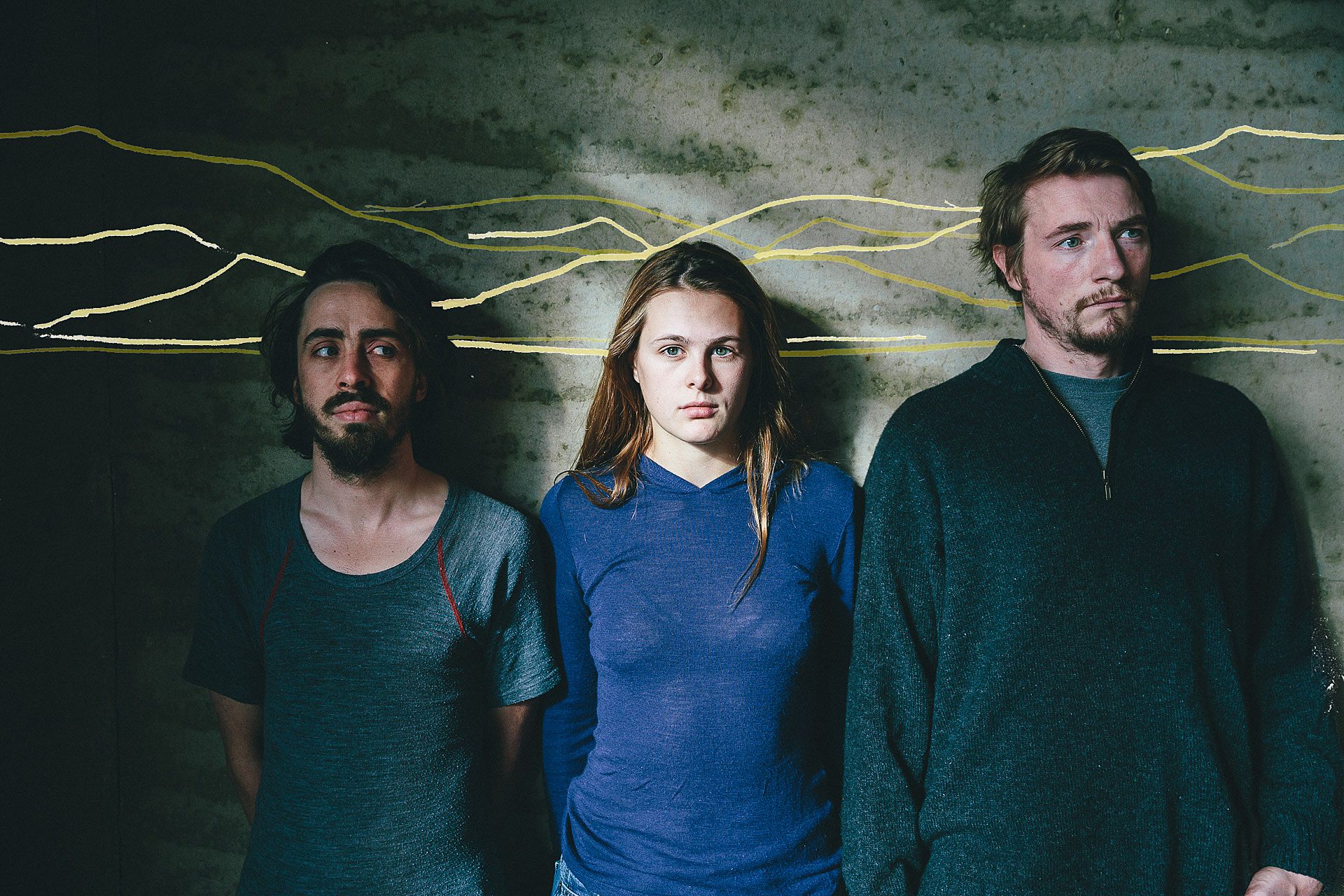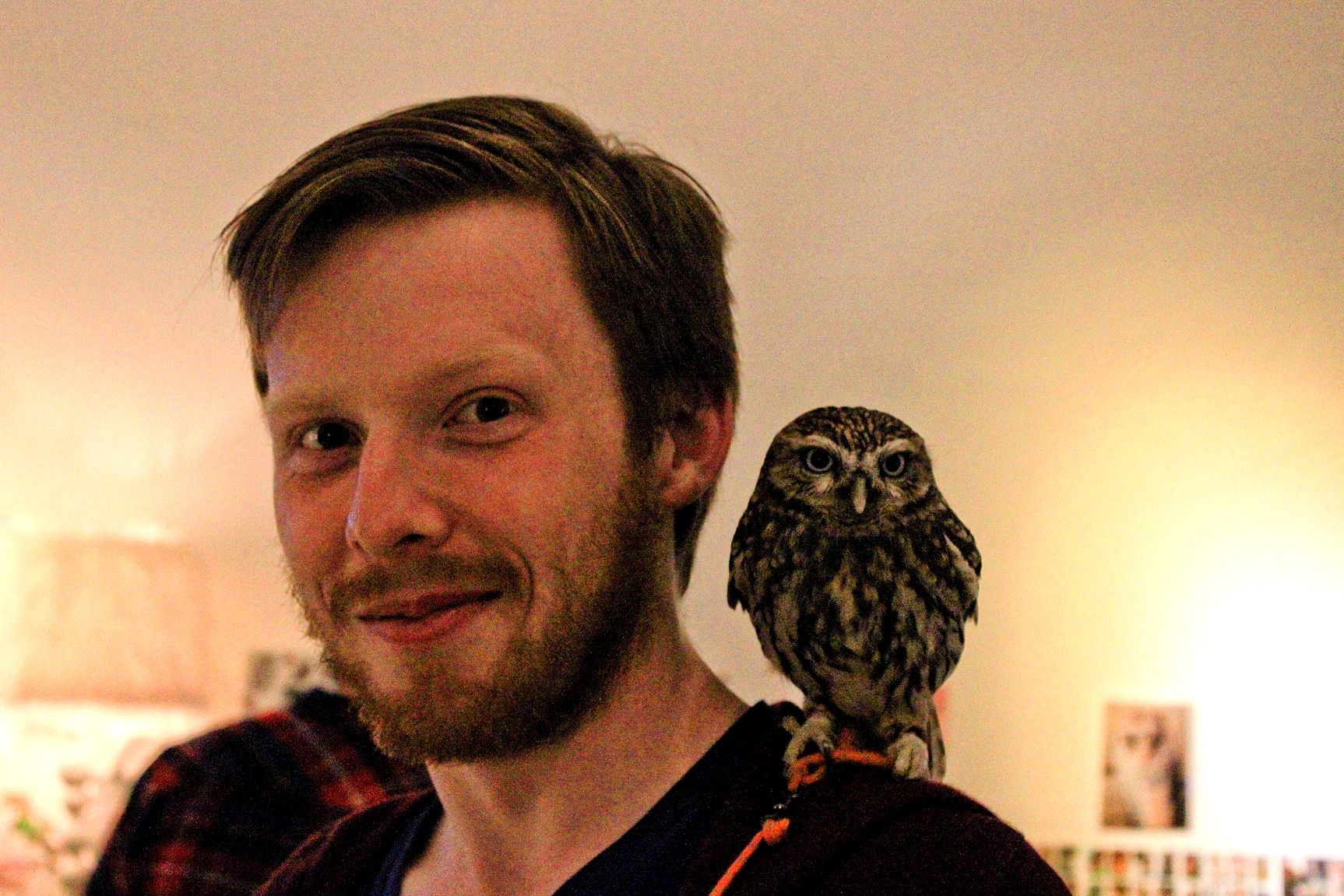Chilly Romance: A Review of No Science To Goodbye
Adam Goodall reviews Annabel Wilson’s No Science To Goodbye and finds a play that never reaches the boil.
Adam Goodall reviews No Science To Goodbye and finds a play that tries to combine poetry and naturalism, but never quite reaches the boil.
The spectre of climate change looms large over Annabel Wilson’s No Science To Goodbye. Frank, a glaciologist from Wanaka, has a front row seat to global warming, helplessly watching it eat away at Southland’s ice shelves. Between scenes he tells us about his research; his observations about frazil ice and glacial change roll into each other like free verse. It’s a heavy-handed metaphor but the language is beautiful, complicated geological concepts rising and falling like a breath. It’s also a happy equilibrium for a play that’s otherwise torn in two, moving uneasily between austere poetry and naturalistic drama.
In Wilson’s chilly romantic drama, writer Elsie (Frankie Berge) returns to Wanaka after years in Germany. Waiting for her is her brother Sam (Calvin Petersen), who snarks his way through terminal lung cancer. Also there, and surprised by her return, is Frank (Chris Tempest), an old flame who turns up to a parent-teacher interview at his son’s school only to find Elsie substituting for the usual teacher. Against the backdrop of the glassy Lake Wanaka, Elsie navigates her relationships and history with the two men she’d left behind.
No Science To Goodbye opens with a prologue of verse and is interspersed with poetic interludes. These are delivered more often than not like monologues with the actors facing the audience directly. The monologues overlap like the rope shapes Elsie busies herself with pre-show. They’re full of dramatic and melancholy turns of phrase: “How do we talk above this howling train”; “The pull of the line that reels you home.” They’re also darkly funny at times, with one interlude opening, “Love is a hill start / in a Kingswood / on a green light / with a fucked clutch.” It’s the anxious, slightly detached language of someone who dreads what’s around the corner, pure cinema of unease. Indeed, in the play’s final scene, Sam warns nobody in particular that you know when it happens, “when your life turns cinematic.” At its best it feels like a reserved and less ferocious version of Skin Tight, which is appropriate, given Gary Henderson’s role here as dramaturg.
Champion’s electronic ambient score builds to fill the space; solo notes and chords are held and looped and woven through each other. It’s like pressure on your eardrums when you sink deep into water.
That feeling of unease is pushed along by Cory Champion’s woozy soundscape. Champion’s electronic ambient score builds to fill the space; solo notes and chords are held and looped and woven through each other. It’s like pressure on your eardrums when you sink deep into water. Champion’s compositions – and Jason Longstaff’s twilight-blue lighting design – place us firmly in a bitter-cold South. It gives the sense of being stuck in a permanent dusk, the long 5pm shadows blurring with the shadows of the past.
No Science To Goodbye works hard to establish that cold, pensive atmosphere, which is why it’s unfortunate that the actual drama is subdued and unwilling to follow that example. Part of that’s to do with Wilson’s script. Elsie, Sam and Frank all have naturalistic speech patterns; they umm and they ahh; their sentences trail off and lurch back into life; they talk like normal people. The poetry of the interludes slowly bleeds into their speech itself: at the risk of spoiling a plot point, at one point Elsie tells Frank, “You were supposed to come over, I had so many things to show you,” and the scene momentarily has the rhythm and pain of a confessional. It’s not enough, though. Wilson’s poetry makes the emotions bigger and more urgent, but it’s jarring, and not in a good way, to be given a glimpse of that, that sharp, deep agony of someone wrestling with their mistakes, and then to be suddenly dropped right back into naturalistic conversation.
The pacing and clarity suffer for it too. By the time we get to Sam and Frank’s oddly indirect and passive argument at Matariki, No Science To Goodbye has nearly reached its end but it feels like it’s only warming up. Wilson and director KJ Smith let the action simmer, but it simmers for too long – conversations are oblique and low-key and key points of conflict and attraction are downplayed until they’re not. The key source of pain between the three characters is alluded to for so long that it’s an anticlimax when it comes out; similarly, a thread about Sam trying to leave Wanaka with Elsie peters out, and the cruel futility of his escape attempt is consumed by the rest of the play.
This combination of poetry and naturalism could work. There’s definitely a melody to be found in the truncated, difficult communication of Southern New Zealanders...
This combination of poetry and naturalism could work. There’s definitely a melody to be found in the truncated, difficult communication of Southern New Zealanders, and the script tries to bring that in line with the characters’ metaphoric, lyrical inner lives (and the grand and oppressive beauty of the landscape made for “missing” and “remembering”). But Berge, Petersen and Tempest’s performances are, like a lot of their dialogue, weirdly normal. They fidget and mumble and run through their lines without much deliberation, different people from the ones who hold our gaze and tell us what Lake Wanaka looks like today: “gunmetal”, “gray”, “an apparition”. Petersen pitches his raspy voice up, talking like he’s trying to convince you of something; Berge holds herself like a coiled spring, perpetually on guard even when she’s sharing jokes with Sam or relaxing around Frank; and Tempest is muted, convincing as a serious Southern-man intellectual with reclusive tendencies, but more strained when asked to express his passion or hurt. There's little to no heat there, nothing to play against that landscape.
No Science To Goodbye has a captivating sense of place and mood, sketching out a wintry and ominous landscape that, like one’s past choices and relationships, can be at once liberating and stifling. Wilson boldly attempts to walk the thin line between that heightened poetry and a more muted drama reminiscent of Gary Henderson or Brad McGann’s bodies of work, but this production doesn’t stick the balance; it’s hobbled by awkward performances and a narrative that takes too long to boil over.
No Science To Goodbye runs at
BATS Theatre, Wellington
from Wednesday 26 April to Saturday 29 April
For more information about No Science To Goodbye, go here.

